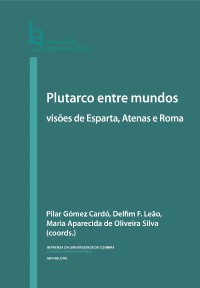Please use this identifier to cite or link to this item:
https://hdl.handle.net/10316.2/36415| Title: | A figura do legislador em Plutarco: recepção de um mito político | Other Titles: | The figure of the lawgiver in Plutarch: reception of a political myth | Authors: | Rodrigues, Ália | Keywords: | Plutarch;Lawgiver;Authority;Autocracy;Policitian;Ethics;Laws;Plutarco;Legislador;Autoridade;Autocracia;Político;Ética;Leis | Issue Date: | 2014 | Publisher: | Imprensa da Universidade de Coimbra Annablume Editora |
Journal: | http://hdl.handle.net/10316.2/36409 | Abstract: | This paper aims to contextualize Plutarch’s contribution to the wide political
and intellectual history of the nomothetes. This contribution must first be understood
in the Platonic‑Aristotelian tradition and, secondly, it must be read in his contemporary
theoretical frame. It is often stated that the figure of the founder‑legislator is key to
Plato’s and Aristotle’s conception of politics. The adoption and rhetorical centrality of
the nomothetes concept by orators also played an important role in the emerging “culture
war” (Allen 2010), which seems to correspond to an ideological Athenian movement
of “nationalism” in a moment of external threat, i.e., when they were facing the Macedonian
other (Allen 2010): the appeals to the more distant Athenian past aimed to fix and crystallise qualities that might be claimed as “timeless Athenian” (Clarke 2009).
Secondly, with regard to the contemporary theoretical frame, how does this political
myth function in the Frame of the Roman Empire? The literary centrality of this idea in
the Roman Empire is revealed by the strong political agenda linked to this concept in
Philo and Josephus, for whom the Platonic nomothetes concept is a rhetorical topos that
corresponds to a powerful trump card for the negotiation of cultural identity.
Thus, if, on one hand, Plutarch’s contribution continues and reproduces the Platonic
nomothetes concept, on the other, it also follows the Romano‑Graeco‑Jewish tradition
in which there was an association between the nomothetes and the Platonic philosopher‑king
in order to assimilate the Jewish narrative to the Greek intellectual tradition
rather than to the Roman one, i.e. a statement of cultural precedence and superiority, an
exercise of authority over the present. Este estudo visa contextualizar o contributo de Plutarco no âmbito político e intelectual da figura do nomothetes. O contributo plutarqueano para a história do conceito intelectual de nomothetes tem de ser entendido, em primeiro lugar, no contexto da tradição platónica‑aristotélica e, em segundo lugar, no enquadramento seu contemporâneo. É muitas vezes referido que a chave para a concepção da política em Platão e Aristóteles é a figura do fundador‑legislador. A adopção e a centralidade retórica do conceito nomothetes por parte de oradores desempenhou também um importante papel na então emergente “culture war” (Allen 2010) que corresponderia a um movimento ideológico ateniense de cariz “nacionalista” num momento de ameaça externa, isto é, quando eles enfrentavam o outro Macedónio (Allen 2010): os apelos a um passado ateniense distante tinham como objectivo fixar e cristalizar as qualidades que poderiam ser consideradas como “timeless Athenian” (Clarke 2009). Em segundo lugar, no que diz respeito ao enquadramento seu contemporâneo, como é que este mito político funciona no contexto do império romano? A centralidade literária desta ideia no Império Romano é revelada pela forte agenda política associada a este conceito em Fílon e Josefo, para quem o conceito platónico nomothetēs é um topos retórico, uma carta de trunfo poderosa para a negociação da identidade cultural. Assim, se por um lado, o contributo plutarqueano continua e reproduz o conceito platónico nomothetes, por outro, ele também segue a tradição romana‑grega‑judaica na qual há uma associação entre o nomothetes e o rei‑filósofo platónico de forma a assimilar a narrativa judaica mais à tradição intelectual grega do que àquela romana, i.e. como uma afirmação de precedência cultural e superioridade, um exercício de autoridade sobre o presente. |
URI: | https://hdl.handle.net/10316.2/36415 | ISBN: | 978-989-26-0920-1 978-989-26-0921-8 (PDF) |
DOI: | 10.14195/978-989-26-0921-8_4 | Rights: | open access |
| Appears in Collections: | Plutarco entre mundos: visões de Esparta, Atenas e Roma |
Files in This Item:
| File | Description | Size | Format | |
|---|---|---|---|---|
| a_figura_do_legislador_em_plutarco.pdf | 933.39 kB | Adobe PDF |  |
Items in DSpace are protected by copyright, with all rights reserved, unless otherwise indicated.
